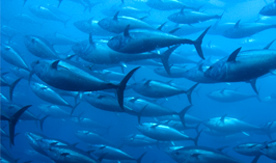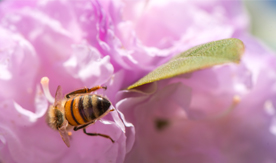Study Shows Bluefin Tuna Going Hungry Due to Size of Prey, not Abundance
Bluefin tuna are going hungry in a sea full of fish because their foraging habits are most efficient with larger — not necessarily more abundant — prey, according to a study led by a University of Maine marine scientist.Walter Golet, assistant research professor in the School of Marine Sciences and the Gulf of Maine Research […]
Read more

